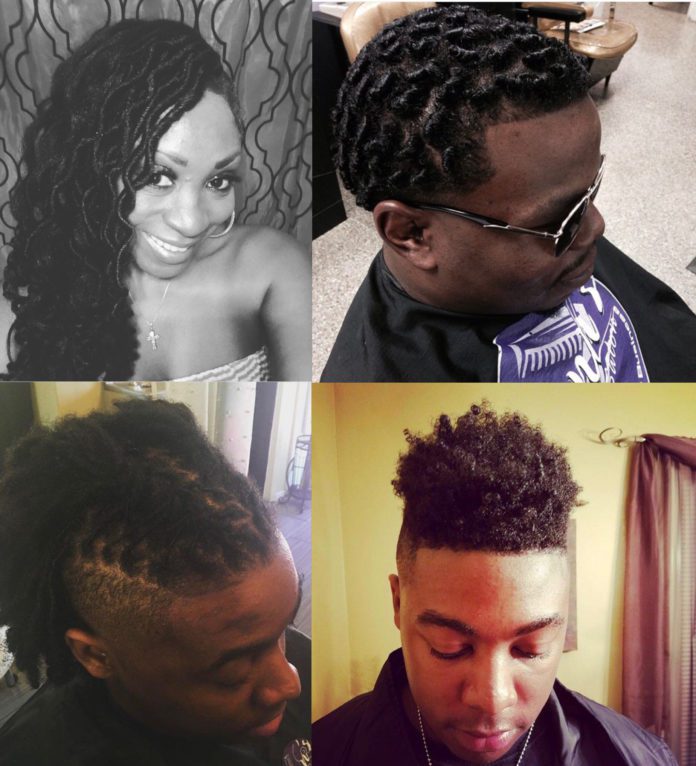Natural hair stylists are celebrating the passing of Tennessee’s CROWN Act, which became effective on July 1.
“It’s been a long time coming,” said Takila Phillips. “I have been a natural hair stylist for more than 20 years. And I hear about so many stories, especially from young, Black men who are forced to cut their dreads and locs because of their jobs.
“This law is going to be a great economic boost for natural hair stylists across the state. My product line will be flying off the shelves. This is so exciting.”

The CROWN (Create a Respectful and Open World for Natural Hair) Act is a nationwide movement to prohibit employers and schools from using hair discrimination to deny employment and educational opportunities because of culture-based hairstyles, such as braids, locs, twists, bantu knots, and all other African-based designs and creations worn on kinky hair.
A national movement formed around the CROWN Act to make it federal law. Although the measure passed in the U.S. House of Representatives, it stalled in the Senate.
A call for state legislatures to adopt the law spurred activism within individual states to ratify the CROWN Act.
Tennessee joined 16 other states in making the CROWN Act law.

Tennessee state Sen. Raumesh Akbari (D-Memphis) became champion for the act when she introduced it in 2021.
“I introduced the bill last year, and it easily passed in the Senate,” said Akbari. “When it got to the House, there were some issues. They wanted to amend the bill, so that it was changed slightly, but nothing major.”
The CROWN Act finally cleared the House in 2022 and returned to the Senate, where it was passed again.
Gov. Bill Lee signed Tennessee’s CROWN Act into law on May 27, 2022, with an effective date of July 1.
“This bill recognizes that all hair is professional,” said Akbari. “The white-collar standard of which hairstyles are acceptable, and which are not is effectively being re-defined with the CROWN Act. No longer can an employer in Tennessee discriminate, retaliate, penalize, or otherwise, punish an employee for wearing braids, locs, afros, or any other styles that define who we are.
“The hairstyles we choose to wear are expressions of who we are,” said Akbari. “We can be professional without wearing our hair straight. Our hair is professional. All hair is professional.”
Those who have experienced discrimination in the workplace because of their hair styles celebrated the bill’s passing.

Jason Fields, 24, is now securely employed with a company that does not discriminate, based on his afro. But it wasn’t always his reality, he said.
“When I was a teenager, I applied to work at Chuck E. Cheese,” said Fields. “I went in for my interview, dressed neatly, making eye contact, and smiling, doing all the things you do in a job interview.
“I was told I had the job, on one condition — that I cut my hair to about a quarter inch. I didn’t get the job because I just couldn’t do that. I wouldn’t do it.”
Natural hair specialist Brinetta Carlton, owner of A Natural Fit Salon and Spa, praised the passing of CROWN Act in Tennessee because it will liberate both men and women to wear all kinds of styles without fear of a workplace reprimand.

“Quite a few customers say their job will not allow certain styles considered to be ‘unprofessional,’ said Carlton. “Black men and women in all kinds of positions can express who they are through their hair. They can also explore and experiment with different styles. Business is picking up already. Natural hairstyles give people more options. Our industry will grow tremendously.”
Akbari added, “My mother is the Hair Doctor. We have always believed in wearing our natural hair. When I was just out of law school, I was told to straighten my hair because it was ‘professional.’
“I was wearing it curly like it naturally is, but that was not viewed as professional. No one will ever have to be ashamed or fearful on the job because of their hairstyle. This is a great victory.”



